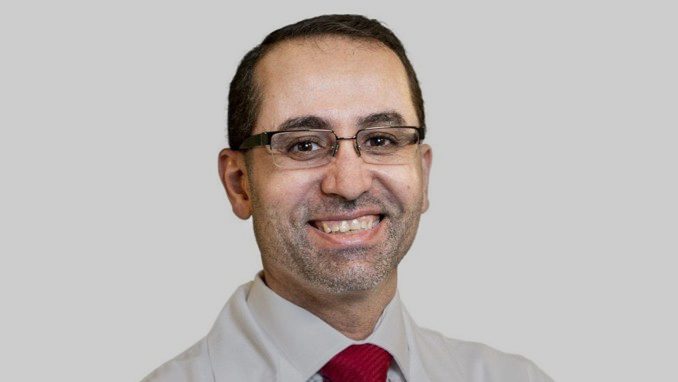Significant Relief from Irregular Heartbeat
June 17, 2025
Patients at Prairie Cardiovascular whose irregular heartbeats are resistant to medication treatment are finding relief as part of the first clinical trial of a safer and precisely targeted noninvasive method of treating persistent atrial fibrillation (AFib).
Prairie Cardiovascular Executive Medical Director Dr. Ziad Issa noted the innovative procedure uses pulsed field ablation (PFA) – short, rapid pulses of electricity – to target and destroy the heart tissue causing the irregular heart rhythm. The traditional method of thermal ablation uses heat or extreme cold to destroy the problem tissue and risks damaging nearby healthy tissue.
A year after the procedure, there was 85% freedom from symptomatic persistent AFib, leading to a significant improvement in quality of life.
“The goal of any physician is to successfully treat their patients so they feel better, participate in the activities they love, and live a more fulfilled life,” Issa said. “I am excited about these results for my patients and for Prairie, since they show our commitment to research that makes a positive difference.”
AFib occurs when the heart’s electrical signals become erratic, causing the heart to beat extremely fast. Blood clots may form, leading to a stroke, or heart failure may occur. Persistent AFib is more serious since it lasts for at least seven consecutive days.
AFib is increasing in the United States, with the American Heart Association reporting that affected individuals are five times more likely to have a stroke.
The U.S. Food and Drug Administration (FDA)-approved trial began in early 2023 and took place at 43 U.S. and global sites, including HSHS St. John’s Hospital in Springfield, using the Boston Scientific FARAPULSE™ PFA System. The medical device manufacturer is seeking FDA approval to expand the system’s use to the more serious form of AFib, which it says accounts for 25% of all cases.
A second phase of the trial incorporated the use of a focal PFA catheter to treat typical atrial flutter (AFL), a less serious irregular heart rhythm. After one year, 96% of the 141 participants were free from AFL. FDA approval is anticipated by the end of the year.
Issa served as a co-author of two separate studies on the two-phase trial. The study on persistent AFib was published in the May 6, 2025, issue of the Journal of the American College of Cardiology and may be read here. The study on typical AFL was published in the April 24, 2025, issue of Circulation, the journal of the American Heart Association, and may be read here.
Prairie Cardiovascular Executive Medical Director Dr. Ziad Issa noted the innovative procedure uses pulsed field ablation (PFA) – short, rapid pulses of electricity – to target and destroy the heart tissue causing the irregular heart rhythm. The traditional method of thermal ablation uses heat or extreme cold to destroy the problem tissue and risks damaging nearby healthy tissue.
A year after the procedure, there was 85% freedom from symptomatic persistent AFib, leading to a significant improvement in quality of life.
“The goal of any physician is to successfully treat their patients so they feel better, participate in the activities they love, and live a more fulfilled life,” Issa said. “I am excited about these results for my patients and for Prairie, since they show our commitment to research that makes a positive difference.”
AFib occurs when the heart’s electrical signals become erratic, causing the heart to beat extremely fast. Blood clots may form, leading to a stroke, or heart failure may occur. Persistent AFib is more serious since it lasts for at least seven consecutive days.
AFib is increasing in the United States, with the American Heart Association reporting that affected individuals are five times more likely to have a stroke.
The U.S. Food and Drug Administration (FDA)-approved trial began in early 2023 and took place at 43 U.S. and global sites, including HSHS St. John’s Hospital in Springfield, using the Boston Scientific FARAPULSE™ PFA System. The medical device manufacturer is seeking FDA approval to expand the system’s use to the more serious form of AFib, which it says accounts for 25% of all cases.
A second phase of the trial incorporated the use of a focal PFA catheter to treat typical atrial flutter (AFL), a less serious irregular heart rhythm. After one year, 96% of the 141 participants were free from AFL. FDA approval is anticipated by the end of the year.
Issa served as a co-author of two separate studies on the two-phase trial. The study on persistent AFib was published in the May 6, 2025, issue of the Journal of the American College of Cardiology and may be read here. The study on typical AFL was published in the April 24, 2025, issue of Circulation, the journal of the American Heart Association, and may be read here.
